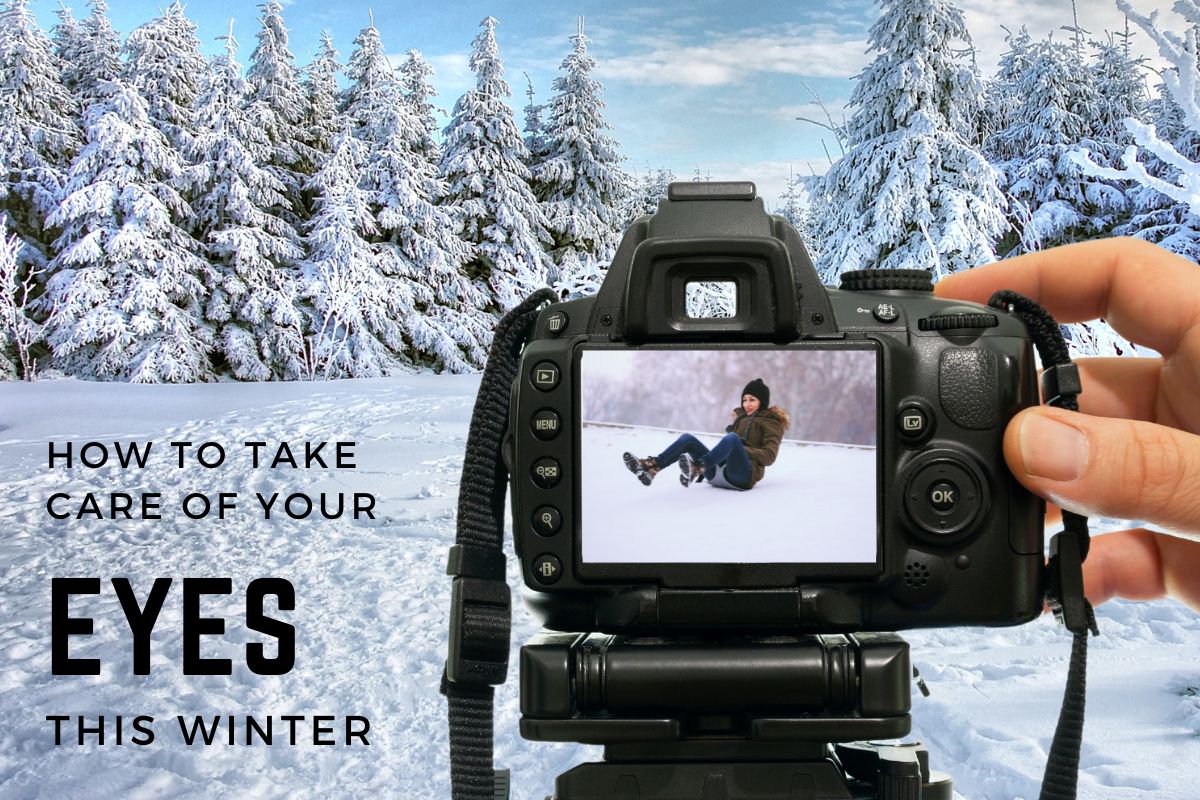Los Angeles LASIK patients are embracing the colder months, but that doesn’t mean the sun is taking a break. Yes, that’s right. The sun is still shining (especially in Southern California). Indeed, we get more hours of daylight in the summer months, but bear in mind that you have to wear sunglasses in winter too!
The laser eye surgery doctors in Los Angeles make clear that harmful UV rays are just as damaging on a snowy mountainside as they are on a sandy beach. During the winter months, your skin is protected by extra clothing, perhaps a jacket or coat, and if you are skiing or live somewhere that’s very cold in winter, you probably wear layers of snow gear. However, our eyes remain vulnerable if we don’t take the necessary measures to wear the proper eye protection.
The Effects Of Dry Winter Air On Eyes
Typically, winter is the drier season compared to the others, especially in our warm and toasty homes and cars. If you are prone to dry eyes, your eyes probably get more scratchy in the winter. Excellent methods for fighting winter dry eye include using a humidifier and staying well hydrated. It may be best to allow the seat warmer to keep you warm rather than the car’s heater.
The Beauty Of Snow Masks The Danger Of Snow Blindness
If you are planning a skiing trip or going to travel more up north, you have to consider how the sun reacts to blankets of snow. For instance, if you aren’t wearing eye protection and get too much sun on a snowy day, you could get a temporary condition known as snow blindness. This is the same problem welders and indoor tanning enthusiasts who aren’t using proper eye protection experience. Therefore, if you are an avid snowboarder or skier, you have to be extra careful since snow reflects sunlight, which boosts UV exposure to the eyes.
The symptoms of snow blindness include burning and pain in the eyes, the feeling of having something stuck in them, light sensitivity, swollen eyelids, watery eyes, blurred vision, headaches, and seeing a lot of glare around lights when indoors.
The issue is that snow blindness doesn’t always occur immediately, so a skier or snowboarder might stay on the slopes for hours, getting even more UV exposure before they realize the effects.
Winter Athletes Should Wear Goggles
Not many of us want to go skiing at night all winter long, so LASIK eye center professionals in Los Angeles suggest that you invest in a good pair of goggles before getting on those bright, sunny slopes. Also, goggles provide better coverage compared to sunglasses, they stay in place better, you can place them on top of glasses, and you can even get them with anti-fog coatings, so they don’t steam up and prevent you from seeing.
When shopping for a pair of goggles, take a look at your options with various colored lenses since they offer different advantages in different conditions. Also, you can get universal lenses that work well in all conditions.
Keep Your Sunglasses Nearby This Winter
UV-blocking sunglasses are vital for eye protection in winter. The only exception is on the ski slopes because LASIK eye doctors in Los Angeles recommend goggles. If you are not skiing or snowboarding but just posing on the slopes instead, polarized lenses are best since the LASIK surgeons believe wearing polarized lenses on the slopes can make it more difficult to make out the contours of the snow. However, polarized lenses are perfect at blocking the light coming in from particular angles, getting rid of glare off the snow. Try to get a good pair of sunglasses that block UV rays and are polarized.
The medical team at Excel Laser Vision Institute can help you choose the best eyewear you need for the slopes. Also, if you are wondering about the LASIK eye surgery cost, do not hesitate to get in touch with us at (866) 923-9235.
